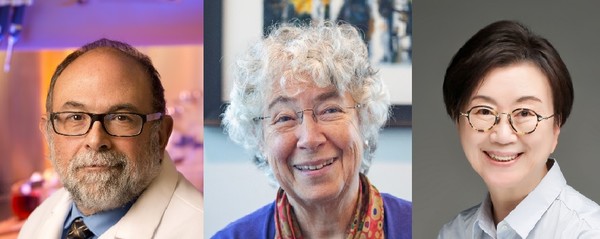Korean biotech companies are increasingly establishing a scientific advisory committee to speed up global new drug development and enhance R&D capabilities.
An advisory group of experts can help the entire new drug development cycle, including developing new pipelines, discovering candidate substances, and designing clinical trials. Also, they can help local companies contact overseas regulatory agencies and clinical researchers for clinical studies.
On July 20, SillaJen announced that it would launch Scientific Advisory Board (SAB) directly under the CEO to strengthen new drug research, development, and clinical study capabilities. In addition, the company said it scouted renowned oncologists, Dr. Steve Morris from St. Jude Children’s Research Hospital, and Dr. Howard Kaufman from Harvard Medical School.
Dr. Morris is an eminent oncologist who studied oncology at St. Jude Children’s Research Hospital for 25 years, lauded for discovering the mechanism of anaplastic lymphoma kinase (ALK) in non-small cell lung cancer (NSCLC) and helping ALK inhibitors – such as Pfizer's Xalkori (ingredient: crizotinib), Novartis' Zykadia (ceritinib), Roche’s Alecensa (alectinib) and Takeda's Alunbrig (brigatinib) – reach the market.
Dr. Kaufman, a melanoma expert, led a pivotal study of Imlygic, the world’s first oncolytic viral therapy. He is researching and conducting clinical trials on melanoma treatments at the Massachusetts General Hospital.
SillaJen said its SAB would advise in all drug development processes, including the clinical trial of Pexa-Vec and studies of a new candidate introduced by Greenfire Bio, a subsidiary of M2N, the acquirer of SillaJen.
On July 8, Isu Abxis launched a scientific advisory committee to expedite the development of immunotherapy.
According to Isu Abxis, two experts joined the advisory group -- Dr. Bernards René, a scholar in cancer stem cell research at the Netherlands Cancer Institute, and Christophe Quéva, Chief Scientific Officer of Oncorus. The company is also pushing to bring a scholar at the Bloomberg-Kimmel Institute for Cancer Immunotherapy of the Johns Hopkins University School of Medicine.
Isu Abxis said its SAB, consisting of experts who have led various research and clinical development and commercialization strategies in immuno-oncology in the U.S. and Europe, will boost R&D to treat cancer and incurable diseases using antibody technology.
In November, Vigencell, an affiliated company of Boryung Pharmaceutical, set up a scientific advisory committee composed of immunology and clinical research experts. The advisory committee consists of three experts in Vigencell's platform technology and clinical research.

Vigencell’s advisory team includes Esteban Celis, a professor at Georgia Augusta University. He previously worked as a reviewer at the National Institutes of Health and a professor at Mayo Clinic in Minnesota.
The committee also includes Suzanne Ostrand Rosenberg, a professor at the Huntsman Cancer Institute of the University of Utah. She is a scholar in immunology related to bone marrow-derived suppressor cells. Moon Han-lim, CEO of Connect Clinical Sciences, who previously worked as oncology medical director for Asia at GSK, is also a member of the advisory committee.
Legochem Biosciences and ABL Bio also operate scientific advisory committees.
Then, why do companies get advice from advisory committees rather than directly hire new drug developers?
Park Sang-ho, executive vice president at Isu Abxis, said it was inefficient to secure global competitiveness with internal staff.
“We will expand open innovation activities and the SAB members to go beyond research and achieve commercialization,” he said.
His comments hint that companies are attempting to boost new drug development capabilities with external advice rather than directly hiring professionals, raising costs.
A company official said scientific advisory board members “get rewarded” but declined to elaborate.
Another company official said companies provide “a kind of consulting fee” for them.
Companies that recently added scientific advisory panels all work on innovative drugs or new drug development platforms in oncology or incurable diseases.
SillaJen is developing an oncolytic virus therapy Pexa-Vec, and Isu Abxis, an anticancer drug Beracetamab (code name: ISU104). Vigencell is also developing treatments for intractable diseases, including ViTier, a patient-customized tumor-targeted killer T cell treatment.
Companies operating scientific advisory committees said the greatest advantage of having the advisory group was that they could obtain know-how on commercializing the product in foreign markets.
“I’ve been conducting local R&D so far, and it is true that we don’t have much experience in global commercialization,” an official at a biotech company said. “Those who joined the scientific advisory committee have rich experience in commercialization and R&D. So, we expect that we can get help in all cycles, including clinical design and activation of a clinical test site.”

